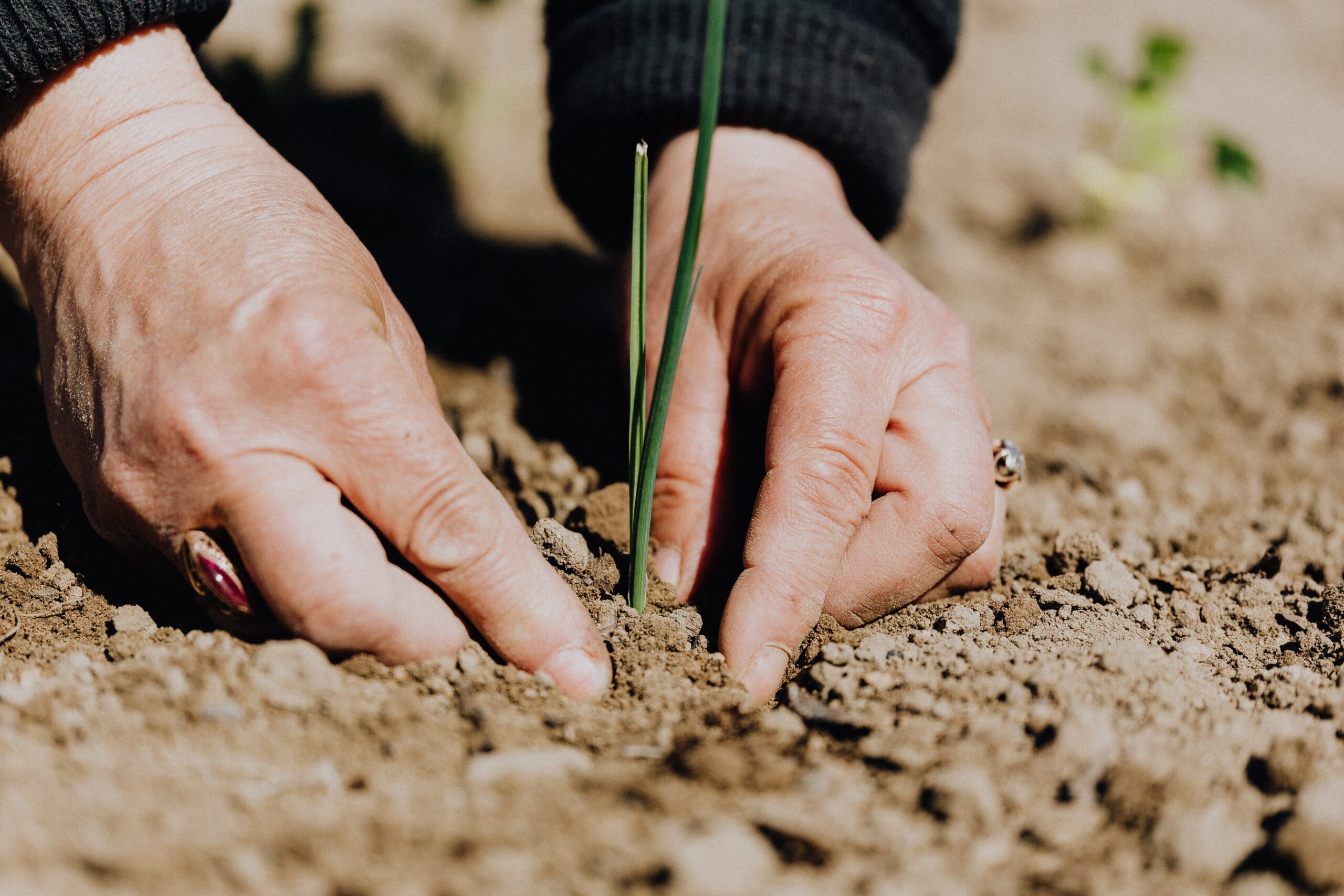Introduction
Thinking about moving to Australia for farm work? Look no further! Whether you’re seeking a temporary adventure or a long-term opportunity, this ultimate guide has got you covered. From understanding the visa requirements to finding the best farming regions and getting equipped with essential skills, we’ll walk you through everything you need to know.
Australia is renowned for its vast agricultural industry, and working on a farm can be an incredibly rewarding experience. However, with so much information out there, it can be overwhelming to navigate the process. That’s where this guide comes in. We’ll provide you with a step-by-step breakdown of the entire process, including tips on finding reputable employers, securing suitable accommodation, and dealing with potential challenges along the way.
Whether you’re interested in cattle farming, fruit picking, or even winemaking, Australia offers a wide range of farm work opportunities. Our guide will not only help you make informed decisions but also provide valuable insights into the lifestyle, culture, and work environment you can expect while living Down Under. So, if you’re ready to embark on an exciting farming adventure in Australia, let’s get started!
Requirements for working on a farm in Australia
Working on a farm in Australia comes with certain requirements that you need to meet. Firstly, you will need to obtain a valid work visa. There are several visa options available for farm work, including the working holiday visa (subclass 417) and the work and holiday visa (subclass 462). These visas allow you to work and travel in Australia for a specified period.
To be eligible for these visas, you must be between 18 and 30 years old (or 18 to 35 for certain countries), have a valid passport from an eligible country, and meet the health and character requirements. Additionally, you may be required to demonstrate sufficient funds to support yourself during your stay.
It’s important to note that the visa requirements may vary depending on your country of origin. It’s advisable to check the official Australian Government website for the most up-to-date information and to consult with a migration agent if necessary.
Types of farm work available in Australia
Australia offers a wide variety of farm work opportunities for those looking to gain practical experience and contribute to the country’s agricultural industry. Some of the common types of farm work include cattle farming, fruit picking, vegetable farming, dairy farming, and winemaking.
Cattle farming involves tasks such as mustering, branding, and feeding livestock. Fruit picking, on the other hand, requires you to harvest fruits such as apples, oranges, berries, and grapes. Vegetable farming may involve planting, weeding, and harvesting various types of vegetables. Dairy farming focuses on the care and management of dairy cows and milk production. Winemaking involves tasks such as grape harvesting, fermentation, and bottling.
The type of farm work you choose will depend on your interests, skills, and preferences. It’s important to research different farm work options and consider factors such as the seasonality of the work, the physical demands, and the location.
Visa options for farm work in Australia
To work on a farm in Australia, you will need a valid work visa. The Working Holiday visa (subclass 417) and the Work and Holiday visa (subclass 462) are popular options for those seeking farm work opportunities.
The Working Holiday visa allows you to work and travel in Australia for up to 12 months. You can also study for up to 4 months during your stay. This visa can be extended for an additional 12 months if you complete at least 3 months of specified work in regional areas, which may include farm work.
The Work and Holiday visa is similar to the working holiday visa but is available to passport holders from certain countries with which Australia has a reciprocal arrangement. This visa also allows you to work and travel in Australia for up to 12 months, with the option to extend it for an additional 12 months by completing specified work in regional areas.
It’s important to note that both visa options have certain restrictions and requirements. For example, you may need to provide evidence of sufficient funds, undergo medical examinations, and meet the English language requirements. It’s advisable to consult with a migration agent or visit the official Australian Government website for detailed information and guidance on visa applications.
Finding farm work in Australia
Finding farm work in Australia can be an exciting and rewarding process. There are several avenues you can explore to secure a farm work opportunity. One of the best ways is to use online job portals and agricultural recruitment websites. These platforms allow you to search for farm work vacancies, connect with potential employers, and submit your applications online.
It’s also worth considering contacting farm labor hire agencies or agricultural contractors. These agencies specialize in connecting farmers with skilled and reliable workers. They can help match you with suitable farm work opportunities based on your skills, experience, and preferences.
Another option is to directly approach farmers or visit local agricultural communities. Many farmers advertise their job vacancies through local noticeboards, community centers, or word-of-mouth. By networking within the farming community, you may uncover hidden job opportunities that are not advertised elsewhere.
When searching for farm work, it’s important to consider factors such as the location, the duration of the work, the pay rate, and the working conditions. It’s advisable to conduct thorough research, read reviews or testimonials, and ask for references before accepting any job offer. This will help ensure that you find reputable employers and have a positive farm work experience.
Living and accommodation options for farm workers in Australia
As a farm worker in Australia, you will need to consider your living and accommodation options. Depending on the farm you work on, you may have various choices available to you.
Some farms provide on-site accommodation for their workers, which can range from shared dormitories to self-contained cabins or houses. This type of accommodation is convenient, as it eliminates the need for commuting and allows you to fully immerse yourself in the farm lifestyle. However, it’s important to note that the availability of on-site accommodation may vary depending on the farm and the season.
If on-site accommodation is not available, you may need to explore alternative options such as renting a house or apartment in nearby towns or cities. This allows you to have a greater degree of independence and access to amenities such as shops, healthcare facilities, and recreational activities. It’s worth considering the distance between your accommodation and the farm, as this may impact your daily commute and transportation costs.
Another option is to join a farm work program or a working hostel. These programs often provide accommodation, meals, and transportation for farm workers. They can be a great way to meet fellow travelers, learn new skills, and have a structured support system during your farm work experience.
When considering your accommodation options, it’s important to factor in the cost of living, the proximity to the farm, and the availability of essential services. It’s advisable to research the local rental market, read reviews or testimonials, and consider the recommendations of fellow farm workers or local communities.
Essential skills and qualifications for farm work in Australia
Working on a farm in Australia requires certain skills and qualifications to ensure that you can perform your tasks effectively and safely. While the specific requirements may vary depending on the type of farm work, there are some essential skills and qualifications that are highly valued by employers.
Physical fitness and stamina are crucial for farm work, as it often involves manual labor, long hours, and exposure to different weather conditions. Good communication and teamwork skills are also important, as you may be working alongside other farm workers or taking instructions from the farm owner or manager.
Certain types of farm work may require specific skills or qualifications. For example, if you’re interested in dairy farming, having experience in animal husbandry, milk production, and pasture management can be beneficial. If you’re considering fruit picking, having knowledge of different fruit varieties, harvesting techniques, and quality control standards may give you an edge.
It’s worth noting that some farm work may require you to obtain additional certifications or licenses. For example, operating machinery such as tractors or forklifts may require a valid driver’s license or a specialized license. It’s important to check the specific requirements for the type of farm work you’re interested in and ensure that you meet the necessary qualifications.
Challenges and benefits of working on a farm in Australia
Working on a farm in Australia can be both challenging and rewarding. It’s important to be aware of the potential challenges and benefits before making a decision.
One of the main challenges of farm work is the physical demand. Farm work can be physically demanding and may require you to perform repetitive tasks, work long hours, and be exposed to various weather conditions. It’s important to have good physical fitness and stamina to handle the demands of the job.
Another challenge is the isolation and remoteness that can come with farm work. Farms are often located in rural areas, away from major cities or towns. This means that you may have limited access to amenities, entertainment options, and social activities. It’s important to consider whether you are comfortable with the solitude and adaptability required in rural living.
Despite the challenges, working on a farm in Australia offers numerous benefits. Firstly, it provides an opportunity to experience the unique Australian countryside and lifestyle. You’ll have the chance to connect with nature, learn about sustainable farming practices, and gain a deeper appreciation for the agricultural industry.
Farm work can also provide a sense of fulfillment and personal growth. You’ll learn new skills, develop resilience, and become more self-reliant. Additionally, farm work often offers a close-knit community and the chance to meet fellow travelers or locals who share a similar passion for agriculture.
Farm work regulations and safety guidelines in Australia
Farm work in Australia is subject to certain regulations and safety guidelines to ensure the well-being of workers. It’s important to familiarize yourself with these regulations and follow the necessary protocols to maintain a safe working environment.
In Australia, farm work is governed by the Fair Work Act, which sets out the rights and responsibilities of both employers and employees. It covers areas such as minimum wages, working hours, leave entitlements, and workplace health and safety.
Farmers are required to provide a safe working environment and take measures to minimize risks and hazards. This includes providing appropriate training, personal protective equipment, and safe working practices. It’s important to follow any safety instructions provided by the farm owner or manager and report any potential hazards or incidents.
It’s also advisable to have appropriate insurance coverage when working on a farm. This includes health insurance to cover any medical expenses and personal liability insurance to protect yourself in case of accidents or damages.
Conclusion and resources for further information
Moving to Australia for farm work can be an exciting and rewarding experience. By following the steps outlined in this guide, you’ll be well-prepared to embark on your farming adventure Down Under.
Remember to research the visa requirements, explore different types of farm work, and consider your living and accommodation options. Equip yourself with the necessary skills and qualifications, be aware of the challenges and benefits, and familiarize yourself with the farm work regulations and safety guidelines.
For further information and resources, you can visit the official Australian Government website, consult with a migration agent, or reach out to local agricultural communities. They can provide you with up-to-date information, guidance, and support throughout your farm work journey.
So, what are you waiting for? Start planning your move to Australia for farm work and seek assistance from ICAustralia! We simplify the application process and increase your chances of success. Additionally, we guarantee a smooth and successful immigration experience to Australia by crafting a personalized immigration plan that aligns with your unique profile and aspirations. As well, we offer comprehensive assistance and guidance from a regulated MARA agent and manage the application submission process on your behalf.
Start your Australian dream by contacting ICAustralia today!


